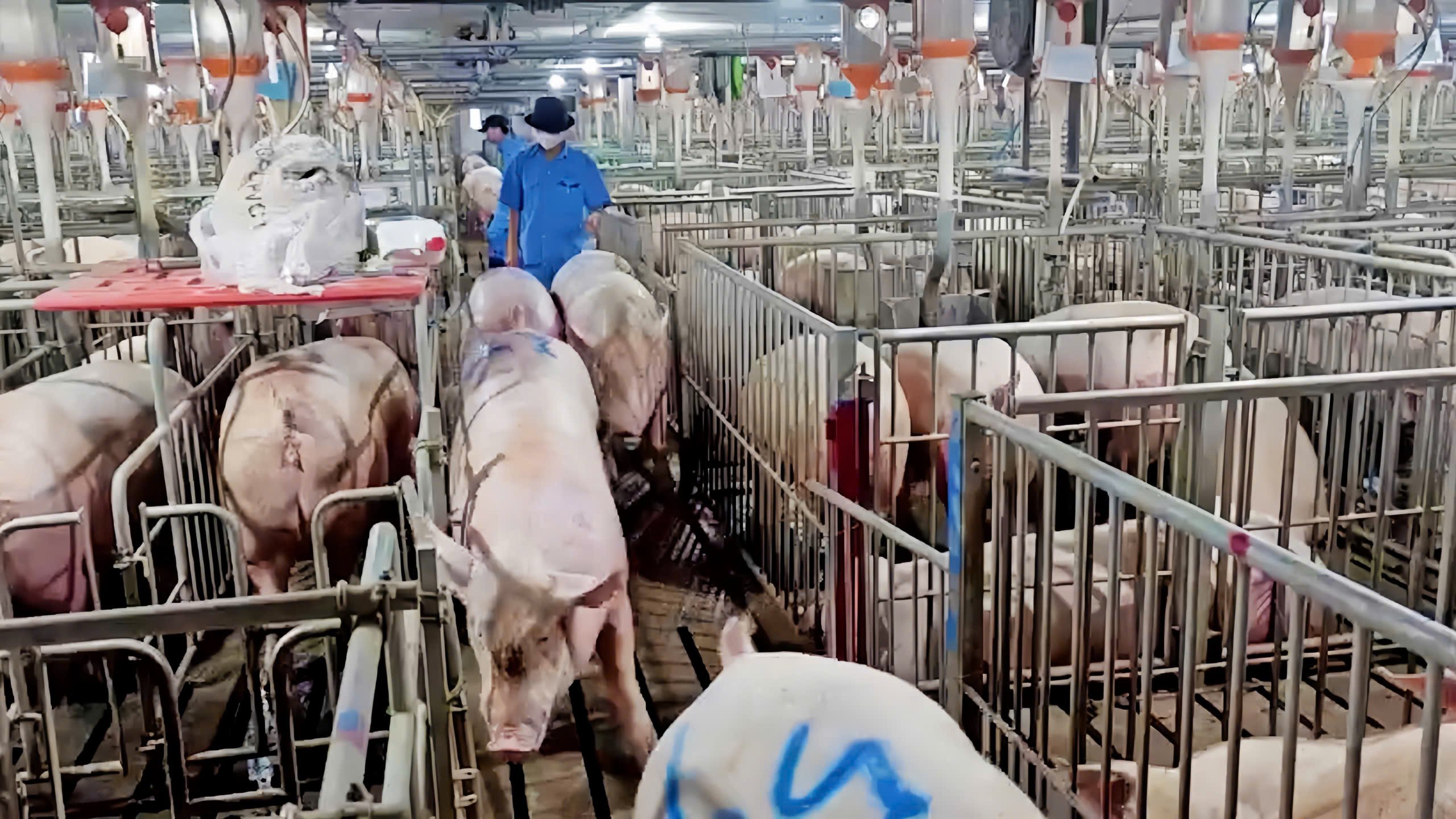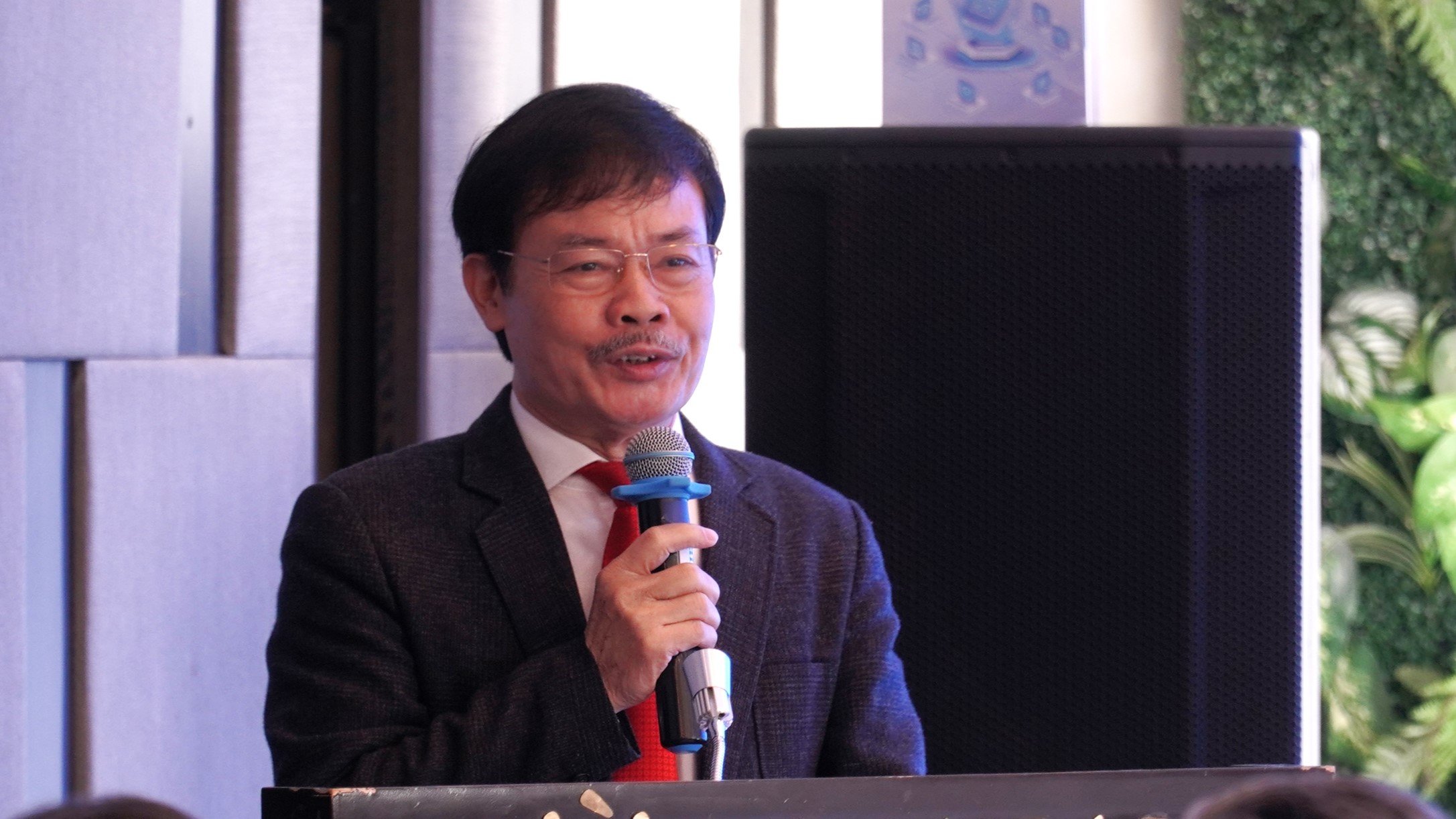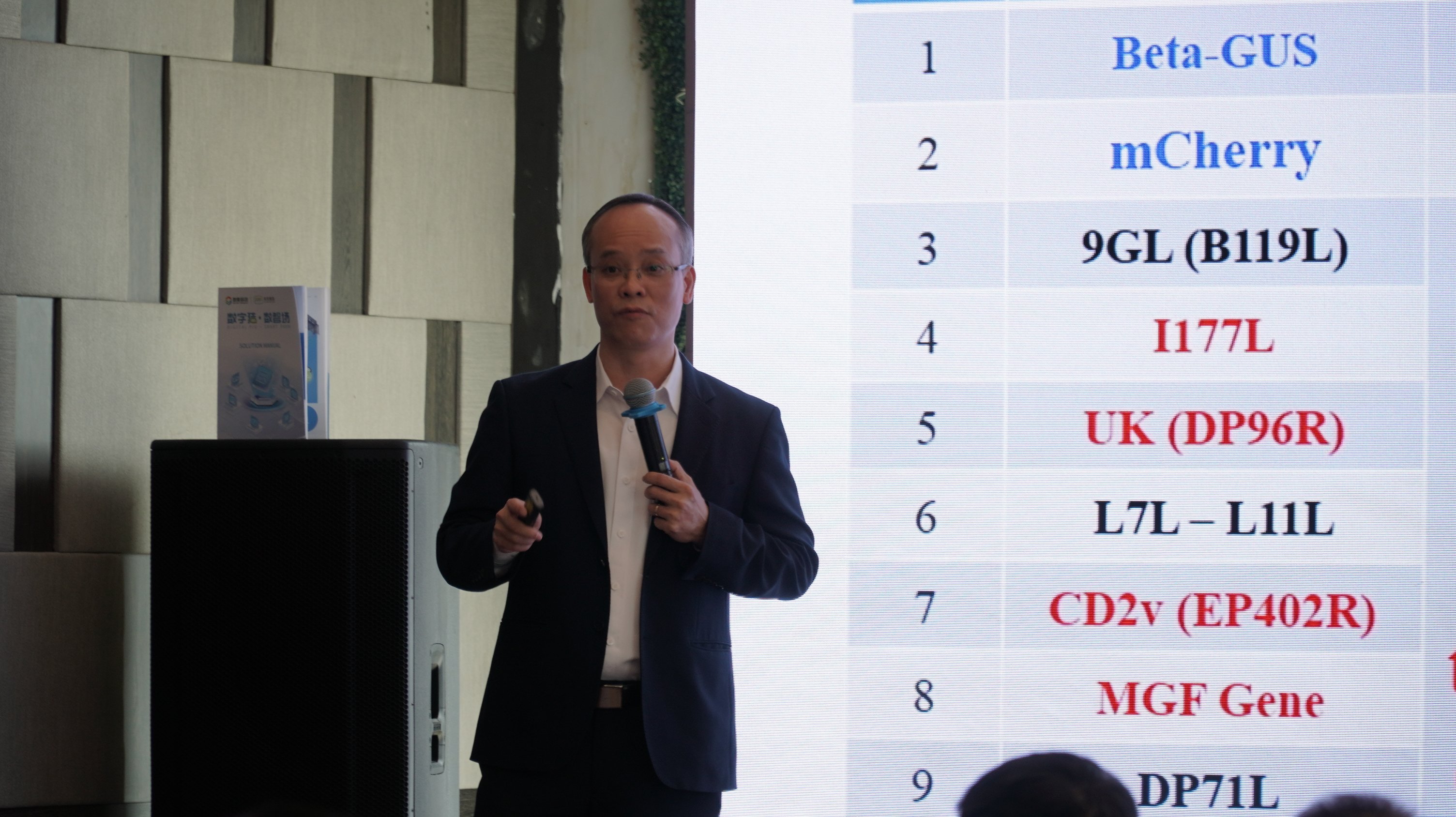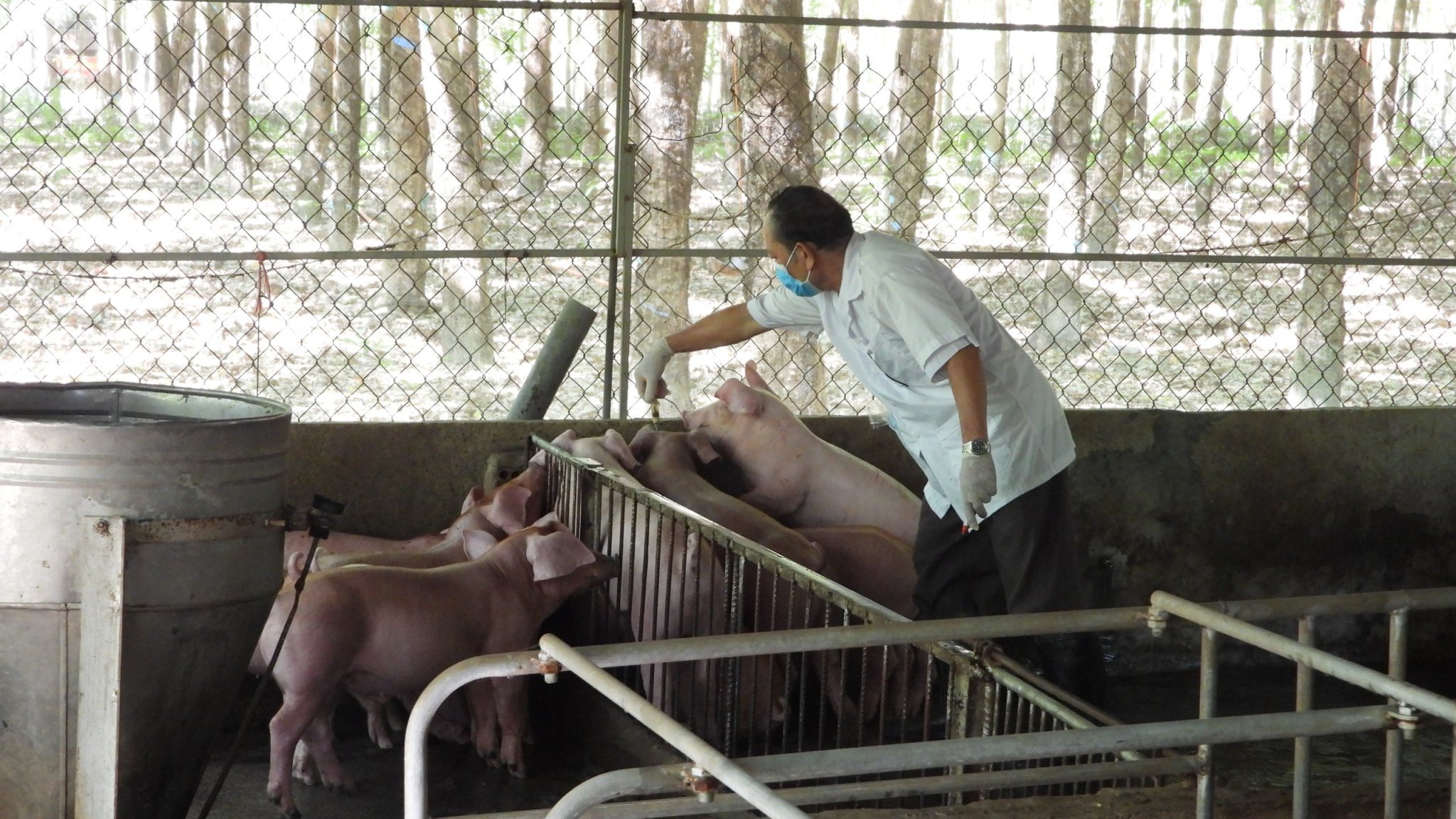December 30, 2025 | 17:20 GMT +7
December 30, 2025 | 17:20 GMT +7
Hotline: 0913.378.918
December 30, 2025 | 17:20 GMT +7
Hotline: 0913.378.918
In the context of pig farming playing an important role in the agricultural economy of many typical countries such as Vietnam and China, one of the major challenges is dangerous diseases, specifically African swine fever (ASF). The application of technology and artificial intelligence (AI) has opened a new direction to help the livestock industry overcome difficulties and develop more sustainably.

The technology-based livestock farming model helps monitor pig health and reduce disease risks. Photo: Tran Phi.
At the recent forum "Innovation of the Chinese - Vietnamese Pig Farming Industry", Dr. Nguyen Xuan Duong, Chairman of the Vietnam Animal Husbandry Association, said, "Vietnam and China, with the largest pig herds in the world, are striving to find optimal solutions for the livestock industry. China has quickly recovered its pig herd after the recent ASF epidemic thanks to the application of advanced farming technology. Meanwhile, Vietnam is also gradually improving its management methods in the process of developing the livestock industry. Applying digital technology, especially artificial intelligence, is considered a key solution to predict and control diseases in pig herds.”

Dr. Nguyen Xuan Duong emphasized the role of technology and AI in controlling livestock diseases. Photo: Tran Phi.
Dr. Nguyen Xuan Duong believed that using AI to predict pig health status can help farmers detect disease symptoms early, thereby intervening promptly to minimize damage. AI systems can analyze data from sensors and images, helping farm workers monitor pig health in real time and detect abnormalities even before there are obvious symptoms. This is particularly important when it comes to African swine fever, where the virus can spread rapidly without clear signs.
Another factor Dr. Duong mentioned at the forum was the focus on biosecurity in pig herd management. After the African swine fever epidemic, China has strengthened biosecurity measures, from antibody testing before entering the herd to hygiene management and culling of infected animals. Biosecurity is considered an important factor in preventing the spread of the disease.
Although Vietnam has encountered many difficulties in implementing biosecurity due to the existence of rural markets, disease control procedures have shown signs of improvement in line with the aim toward the sustainable development of the livestock industry.
Dr. Le Van Phan, a leading expert on African swine fever from the Vietnam National University of Agriculture, presented important research on the disease. “Vietnam faced great losses when African swine fever broke out in 2019, destroying approximately 6 million pigs, equivalent to 30% of the total herd. The disease not only caused economic losses but also left a profound impact on the household farming model, reducing the number of pig farming households,” he said.
From his point of view, vaccine development remains a challenge because the African swine fever virus has a complex structure and is able to mutate rapidly. Although there has been some progress in vaccine research, vaccine efficacy is yet to reach 100% protection.
Other technologies are also being applied to enhance disease prevention. AI can analyze samples and health indicators of pigs to make more accurate predictions about the potential spread of disease. This can help farms take timely measures to prevent the spread of viruses before outbreaks occur.

Dr. Le Van Phan shared in-depth research on ASF and challenges in vaccine development. Photo: Tran Phi.
According to Dr. Nguyen Xuan Duong, applying technological solutions in seed and nutrition management can help improve production efficiency and reduce livestock costs. Practice also shows that investment in technology is not limited to large-scale farms, but is gradually spreading to small and medium-sized livestock models.
Livestock cooperatives and groups in some localities, such as Bac Giang, Dong Nai, and Ha Nam, have begun deploying systems to monitor barn temperature, feed rations, and pig weight using mobile applications. These tools help farmers easily manage their livestock herd even when they are not directly present at the farm, minimizing errors in the care and treatment process.

Remote monitoring and traceability solutions are spreading to small and medium-sized farms. Photo: Tran Phi.
“The future of the pig farming industry in Vietnam and China is changing with the application of technology and artificial intelligence. Although there are still difficulties in disease control and vaccine development, advances in technology will contribute to creating a more sustainable and safer pig farming industry. Thanks to international cooperation, the livestock industry will have more opportunities to experience strong development in the future,” said Dr. Nguyen Xuan Duong, Chairman of the Vietnam Animal Husbandry Association.
Translated by Samuel Pham

(VAN) Located in three former provinces, Nam Dinh, Thai Binh, and Ninh Binh, and now in two provinces, Ninh Binh and Hung Yen, "Red River Delta" is the name of Vietnam's first interprovincial coastal wetland World Biosphere Reserve.
/2025/12/29/1046-1-210728_624.jpg)
(VAN) In 2025, Viet Nam recorded severe and extreme disasters, breaking multiple historical records and causing heavy losses in lives, property, and infrastructure nationwide.

(VAN) Applied technologies, water-saving irrigation is a strategic solution to promote climate-resilient agriculture and strengthen water security in the uplands.
/2025/12/29/3936-3-163422_251.jpg)
(VAN) Can Gio mangrove forest in particular and the entire Can Gio Mangrove Biosphere Reserve in general hold great potential for carbon credits.

(VAN) Chu Pah Rubber has announced its products that comply with the EU Deforestation Regulation (EUDR), affirming its commitment to sustainable production and product origin transparency.

(VAN) Deputy Director Nguyen Hoai Nam stated that a digital data platform will be developed with agricultural sector databases, utilizing AI to help farmers make informed decisions on 'watering correctly, sufficiently, and efficiently.’
/2025/12/29/4841-2-134224_777.jpg)
(VAN) From only about 10 individuals in 2009, the wild elephant population in Dong Nai has recovered to nearly 30 animals after more than 10 years.